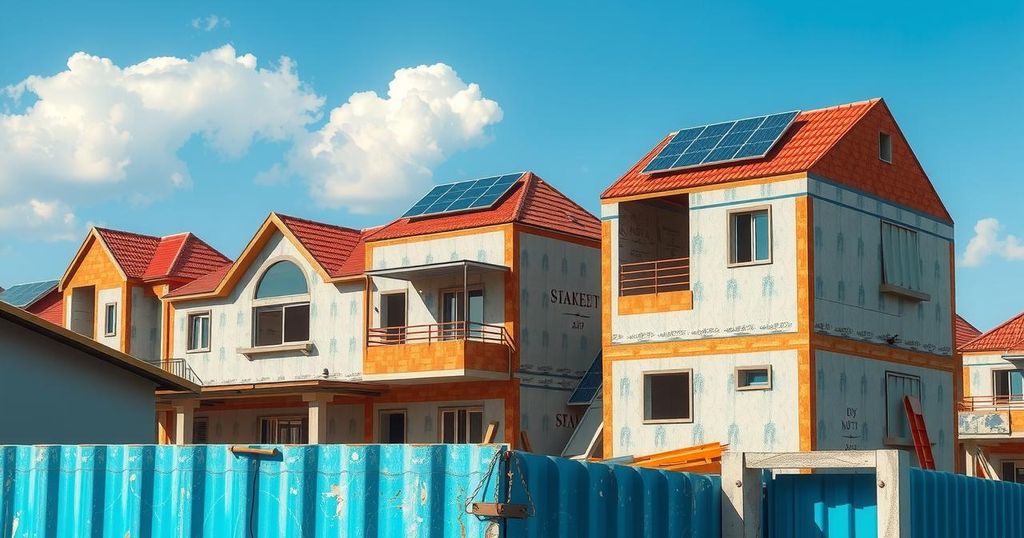In 2024, inflation significantly impacted Nigeria’s housing market, creating affordability challenges and changing demand dynamics. Developers are adopting innovative cost-saving technologies, including modular construction and renewable energy solutions. The rising inflation rate, driven by multiple economic factors, has heightened construction costs and altered consumer behavior. A proactive approach is essential to mitigate these effects and create a sustainable housing market.
A recent report by BuyLetLive reveals that inflation significantly transformed Nigeria’s housing market in 2024, leading to affordability challenges and changing demand dynamics. The report emphasizes the need for Nigeria to prioritize affordable housing, incentivize local building material production, and adopt cost-saving technologies to counter inflation’s negative effects in the real estate sector going into 2025. It advocates for a proactive strategy to create a sustainable and resilient housing market.
While inflation has posed challenges, it has also catalyzed innovation in Nigeria’s housing sector. Developers are increasingly utilizing cost-saving methods such as modular construction and prefabricated materials to reduce construction time and costs while ensuring quality. The adoption of renewable energy solutions, like solar panels, is also on the rise, aimed at lowering utility expenses for homeowners and tenants. Trends in energy-efficient designs and smart technology are becoming more prevalent, appealing to buyers focused on energy savings.
Despite its vital role in Nigeria’s economy, the real estate sector has faced pressure due to the inflationary environment, which has slowed housing demand and hindered some construction projects. The report highlights that inflation has emerged as a key determinant of economic realities in Nigeria, revealing the interconnectedness of fiscal policies, monetary policies, exchange rates, and international trade dynamics. The naira’s significant depreciation against the US dollar—from N1,413: $1 to N1,757: $1 by late November—has intensified economic challenges.
In 2024, Nigeria’s inflation rate surged from 29.9% in January to 34.8% in December, driven by currency devaluation, rising energy costs post-subsidy removal, and global supply chain disruptions. Consequently, essential goods, including building materials, became increasingly expensive. The existing housing deficit of 28 million units has been further exacerbated, with inflation complicating housing affordability and demand.
Affordability challenges have intensified within the housing market, leading families to downsize, postpone homeownership, or face higher rental costs due to rising mortgage rates and property prices. Major building materials, including cement and steel, saw price surges exceeding 30% and 40%, respectively. The average cost of a 50kg bag of cement increased from ₦3,800 in 2022 to ₦7,000 in 2024, while labour costs also rose due to inflated living and energy expenses, pushing developers to pass costs on to consumers through increased property prices.
Inflation has significantly reshaped Nigeria’s housing market, leading to affordability issues and a shift in demand. The real estate sector, while crucial to the economy, faces immense pressures due to rising costs and changing consumer behaviors. To navigate these challenges, innovative construction methods and a focus on affordable housing solutions will be essential. The interplay of inflation with economic factors such as currency fluctuations continues to complicate the landscape and underscores the need for strategic interventions in the housing sector.
Original Source: punchng.com






